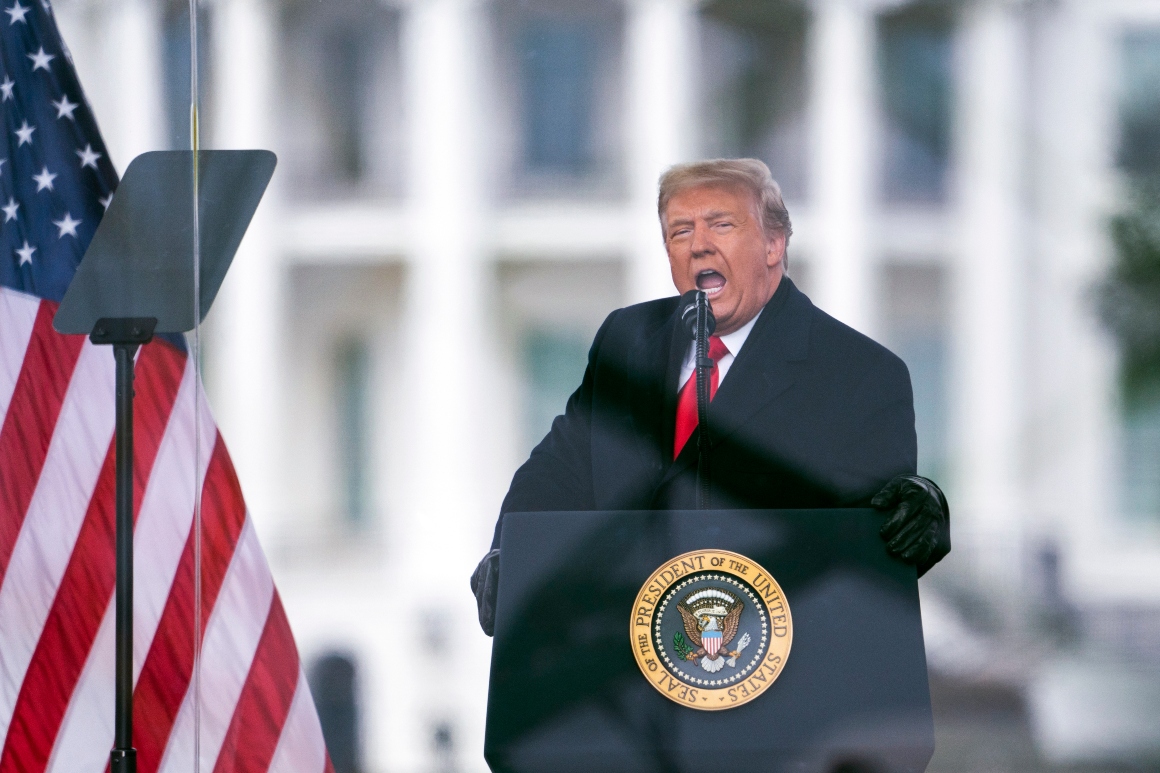
For most of my reporting career, to refer to some dispute or another — over a judicial nomination, perhaps, or an uproar over a proposed shopping mall near a battlefield — as “a new Civil War” was to reach for a metaphor.
On the anniversary of the Jan. 6 insurrection at the Capitol, we mark the evolution of journalistic cliche: Serious people now invoke “Civil War” not as metaphor but as literal precedent.
The Trump years, which it is now evident did not end with his presidency, have awakened a conflict so profound that, as in the 1860s, democracy, constitutional order and union itself are in peril.
A big deal, indeed. But also a puzzle: If this is a 21st century version of 19th century disunion, shouldn’t it be more obvious what the war, at bottom, is all about?
The Jan. 6 anniversary is a reminder that the chaos of the Trump years in one important respect — and perhaps only in one — is a historical anomaly. The country many times over has witnessed dissent and disruption far more violent than anything seen in recent years. But earlier episodes featured profound ideological and moral questions — easily visible to the naked eye, in the present and to historians afterward — that lay at the heart of the matter.
The real Civil War was about slavery — at the start, to restrict its territorial expansion, by war’s end to eliminate it entirely. Capitalists opposed to the New Deal knew why they loathed FDR — he was fundamentally shifting the balance of power between public and private sectors — and FDR knew, too: “They are unanimous in their hate for me, and I welcome their hatred.” The unrest of the 1960s was about ending segregation and stopping the Vietnam War.
Only in recent years have we seen foundation-shaking political conflict — both sides believing the other would turn the United States into something unrecognizable — with no obvious and easily summarized root cause. What is the fundamental question that hangs in the balance between the people who hate Trump and what he stands for and the people who love Trump and hate those who hate him? This is less an ideological conflict than a psychological one.

On the surface, of course, everyone knows what the Capitol mayhem and its acrid aftermath are about. One side unreasonably believes that President Joe Biden’s 2020 presidential victory was stolen, and the other side reasonably fears that former president Donald Trump’s followers are so slavishly under his spell that they are willing to hijack the legal apparatus guaranteeing free and honest elections in order to facilitate his return to power in 2024.
But the violent conflict spurred by the 2020 election flowed from years of conflict over every aspect of Trump’s rise to the presidency and his performance in it. In the nearly seven years since his presidential ambitions took flight in 2015, there has been a daily deluge of outrages and provocations, and a corresponding flood of explanations of what’s really going on here — why his partisans are so aggrieved, why they are so drawn to the most garish personality ever to occupy the presidency.
Efforts to explain Trump often rely on complex sociological or economic theories. He was a backlash to globalization and selfish elites. He exploited resentment of trade and the decline in real wages. He was the representative of people who disliked the cultural ascension of women and African-Americans and the diminution of working class white males. And so on.
All semi-plausible. All inadequate in the face of Trump’s zigs on one day and zags the next, and the obvious truth that most of his partisans are attracted to him less for any programmatic reason than for the sheer bombast of his performance — and especially that he offends his opposition.
The more the vitriol has risen the less consensus there is about the origins of anger. To the contrary, there is something closer to an establishment consensus that the search for root cause is folly — the Trump phenomenon defies explanation, and the threat posed by his demagoguery makes speculation about its origins an irrelevant distraction.
Violence at the Capitol is hardly unprecedented. At least the Puerto Rican terrorists who shot five representatives from the House gallery in 1954 had a clear agenda: “Viva Puerto Rico libre!” (Long live free Puerto Rico) shouted one of them. Sen. Charles Sumner of Massachusetts in 1856 was the superior of Donald Trump when it comes to vivid insult. Of South Carolina Sen. Andrew Butler, he said, he “touches nothing which he does not disfigure with error, sometimes of principle, sometimes of fact. He cannot open his mouth, but out there flies a blunder.” Butler’s nephew, Rep. Preston Brooks, was clear on why he caned Sumner on the Senate floor, and Sumner was, too. It was because he accused Butler of being in love with a mistress, “I mean the harlot, slavery.” They were arguing over the transcendent issue of their time.
The transcendent issue of this time — no matter the specific raw material of any given news cycle — is the belief that one half of the country suspects the other half is contemptuous of them, and responds with contempt in turn. “Seinfeld” was not really, as was often said, “a show about nothing.” It demonstrated instead that with the right characters and frame of mind, you can make a show about anything that might happen in daily life. Donald Trump has shown that you can use the same approach to create a national crack-up. The violent rabble that crashed the Capitol a year ago showed that crack-ups are fertile ground for crackpots.
Are you starting 2022 in an optimistic mood? You might take solace in the argument that it’s hard to have a real civil war without a real cause — a great question that will be resolved by the outcome. Trump’s moment in national life will die out because he always has lots to say but no longer has anything meaningful to say.
Or perhaps recent years have steered you toward escalating pessimism. Perhaps the squalor of modern politics flows from ancient truths of human nature. People are easily manipulated with appeals to prejudice and paranoia, never more so than when technology has led to massive growth in the industry of commercialized contempt. A country that can have a civil war with no one really knowing what the conflict is about is one in which the muscles of governance are pitifully atrophied.
----------------------------------------
By: John F. Harris
Title: We Are In a New Civil War … About What Exactly?
Sourced From: www.politico.com/news/magazine/2022/01/06/new-civil-war-about-what-exactly-526603
Published Date: Thu, 06 Jan 2022 04:30:01 EST






